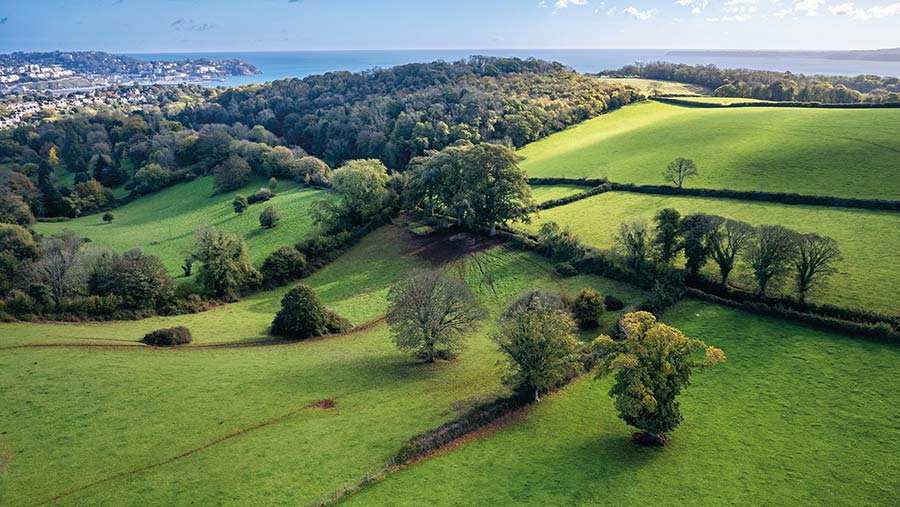Land Registry backlogs delay land and farm sales
 © Maciej Olszewski/Adobe Stock
© Maciej Olszewski/Adobe Stock Extended Land Registry processing times are holding up some farm and land sales.
The timescales for first registrations, registered land transfers and other changes have grown over the past few years, say land agents and solicitors.
See also: Business Clinic – how can we register land if deeds are lost
“First registrations at the Land Registry have been incredibly slow,” said Kevin Prince of Oxfordshire agent Adkin.
“I have had three sales in the last two years needing first registrations, all have been delayed by three to six months.”
This is usually because the buyer’s solicitor requires that the property is registered before the sale can go ahead.
“There’s no reason why it can’t be bought unregistered but buyers’ solicitors are very unwilling to do this,” said Mr Prince.
Andrew Dodds of Stags’ Exeter office said that first registrations were taking six to 12 months but that he had heard of some taking 18 months.
“In the past, you would expect the conveyancing process to take two to four months and you could expect the land registration issue to be sorted in that period,” said Mr Dodds.
While the situation has been exacerbated by an increased number of property transactions as the market opened up since Covid restrictions were lifted, longer processing times were an issue well before 2020, said lawyer Alex Robinson, head of agriculture at Wright Hassall.
Last month, she received initial questions from the Land Registry about a new lease title for which she made an application in the late summer of 2020.
Bottleneck and backlogs
Less straightforward applications such as first registrations are getting caught in bottlenecks, leading to backlogs that did not previously exist.
It seems that this arises as a result of the digital transformation of processes at the Land Registry.
The Land Registry often raises questions, known as requisitions, on first registrations and other complex cases such as transfers of parts of a title.
More straightforward applications, such as transferring a property title, are still taking three to six months.
While sales and other ownership changes can go ahead pending registration, this can cause uncertainty and in some cases distress for clients, said Mrs Robinson.
“It can also delay probate if it is taking a long time to register a property before being able to sell it.”
A request to expedite an application can be made if it can be shown that the delay will cause financial hardship or that it is holding up an application on another transaction, said Mrs Robinson.
Land Registry processing times
The Land Registry said it is currently completing more than half of complex applications, such as first registrations, in 11 months.
The majority are completed in just over 15 months, but some might take a few months longer depending on the application, it stated.
Almost two-thirds of complex registrations received in the last year were returned to the applicant (usually the conveyancer) due to errors or omissions in the application.
This causes extensive delays to the affected applications and to the average speed of service times, said the registry, with returned applications taking on average six weeks longer to complete.
The types of errors or omissions include names spelled differently between the documents and the register, undated deeds, missing pages, incomplete addresses, illegible handwriting, inadequate or unreadable plans, and questions over easements, covenants and restrictions.
More than half of the more straightforward applications to update the register, such as changing a name or transferring a property title, take just over three weeks complete, said the registry, with most completed in three months.
However, in some instances, these are taking just under six months to complete, it said.
First registrations of land
Since 1990, unregistered land must be registered for the first time when ownership changes or when a mortgage is taken on it.
The seller or the buyer can make the application to register land.
There is also the option to make a voluntary registration. This gives proof of title, helps protect the land from fraud and makes it easier in future to change, sell or gift the property.
Voluntary registration attracts lower fees than a compulsory first registration.
Has this issue affected your plans to buy or sell a farm or land?
Email suzie.horne@markallengroup.com or write to:
Suzie Horne, business editor,
Farmers Weekly,
Mark Allen Agriculture,
Quadrant House,
The Quadrant,
Sutton,
Surrey,
SM2 5AS
